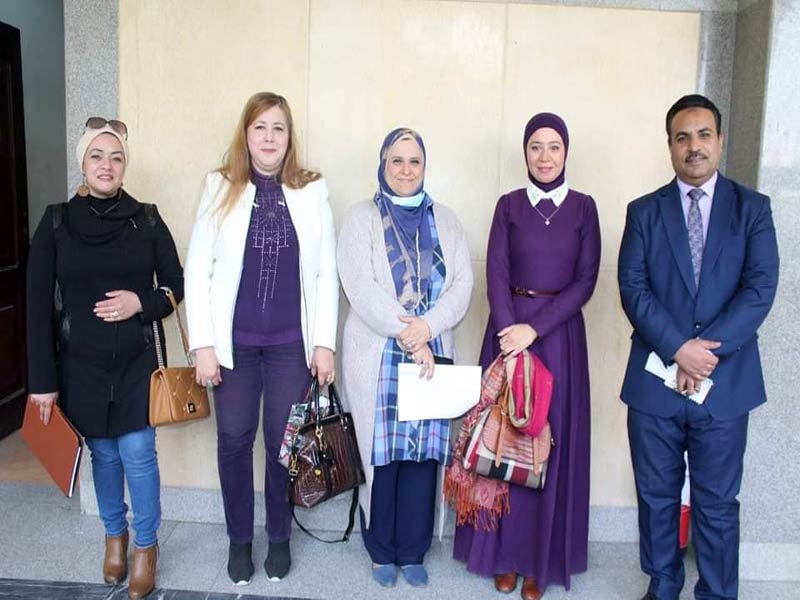A great turnout on the seminar on how to deal with people with disabilities... at the Faculty of Arts in cooperation with the Faculty of Postgraduate Studies for Childhood
The Community Service and Environmental Development Sector at the Faculty of Arts, Ain Shams University, in cooperation with the Faculty of Graduate Studies for Childhood, organized a symposium entitled: “How to deal with people with disabilities” in the faculty conference hall under the auspices of Prof. Dr. Mahmoud El-Matini, President of the University, Prof. Dr. Hesham Tamraz, Vice President for Community Service and Environmental Development, Prof. Dr. Mustafa Mortada, Dean of the Faculty of Arts, Prof. Dr. Howayda El-Gebali, Dean of the Faculty of Graduate Studies for Childhood, under the supervision and coordination of Prof. Dr.. Rasha Al-Didi, Vice Dean of the Faculty of Arts for Community Service and Environmental Development, Prof. Dr. Randa Kamal Abdel Raouf, Vice Dean of the Faculty of Graduate Studies for Childhood Affairs for Community Service and Environmental Development.
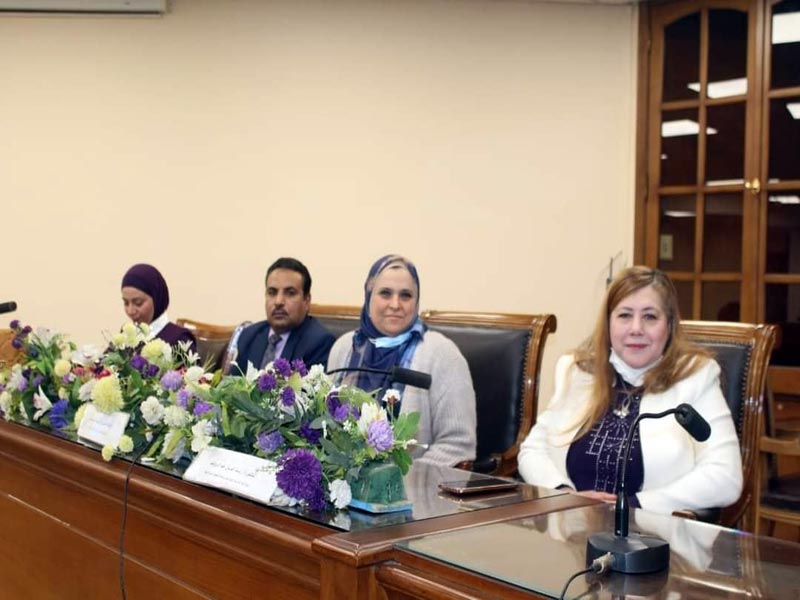 |
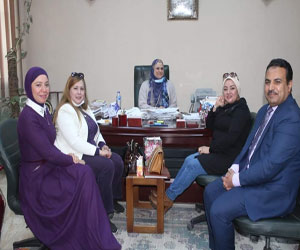 |
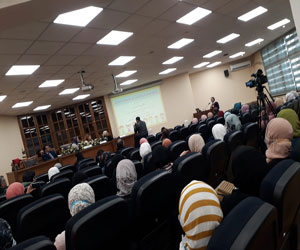 |
||
The seminar discussed: ways and methods of dealing with the problems of people with disabilities, and how to deal with the embarrassing behavior of a person with a disability.
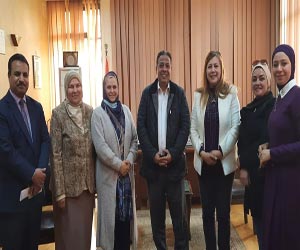 |
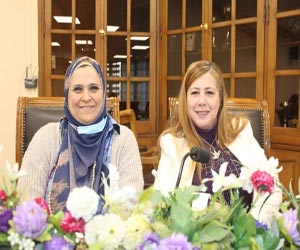 |
|||
Dr. Amira Omar, a consultant for the self-care unit at the Center for Special Needs, Dr. Amal Abdel Mawla, a prisoner counseling unit consultant at the Center for Special Needs Care, gave lectures at the symposium from the Faculty of Graduate Studies for Childhood.
Prof. Dr. Rasha El-Didi said that the symposium aimed to achieve the highest levels of cooperation desired between the university’s faculties through concerted and integrating efforts and scientific research to come up with results and recommendations to serve the category of people with special needs, in line with the directives of the political leadership to unite the efforts of all state institutions, especially the university, to take care of solving the problems facing this category, which needs the most support, as tolerance, affection and acceptance of the other are among the signs of civilized countries.
While Prof. Dr. Randa Abdel-Raouf refused and renounced bullying of the person with disabilities and spread the culture of adapting society to the person with disabilities and not the other way around, as the proportion of this group reaches 15% of the world’s population, and stressed the importance of understanding, acceptance and recognition of the right ways of dealing, with a distance from the idea of stigma and shortcoming It also reviewed the college's efforts in launching several awareness campaigns calling for attention to issues of personality with disabilities inside and outside the university and in cooperation with community institutions. It also praised one of the most important decisions binding faculty members on courses on how to deal with people with special needs.
The seminar also emphasized the essential role of the family in the integration of these people into society, coexistence, and participation in interactive and social activities. It witnessed a great interaction between the attendees, the parents of the students, and the lecturers, by answering a large number of inquiries and questions.
It was held in the presence of a large number of faculty staff and members of the community service and environmental development sector in the two faculties.
At the end of the seminar, everyone was keen to take souvenir photos.
Furthermore, Prof. Dr. Rasha Al-Didi thanked the attendances, headed by Prof. Dr. Muhammad Qassem, Director of the Center for Studies, Consultations and Training, Prof. Dr. Eman Taha, Director of the Alumni Unit, Prof. Dr. Amani Abdel Rahim and Mrs. Iman Mahmoud, the College Secretary, the Department of Public Relations, the Media Production Unit, the photography officials, faculty members, members of the college’s administrative staff, all male and female students, and families of students with disabilities.
.svg)

